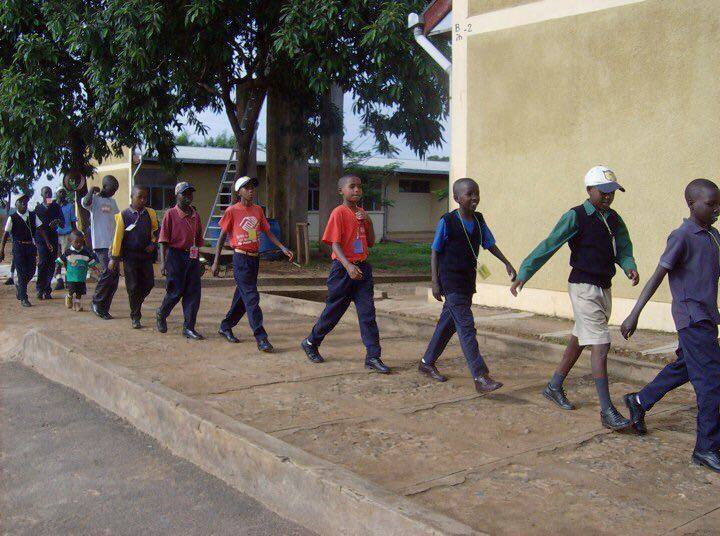Opportunity found: from Ethiopia to Lakeland
February 26, 2016
Alemayehu Lehman, freshman undeclared major, knows the value of four walls. Many at Lakeland know him as “Alex,” but what people may not know is his past life spent living in Ethiopia.
Lehman grew up in the village of Berber until he was orphaned at the age of seven. He then lived with his aunt in the Mitera village from eight to nine years old.
Next, he went to the Kamashi Orphanage in Ethiopia. This orphanage is supported by and run through a non-profit organization called Blessing the Children International.
Lehman described the orphanage, motioning his hands in a circular rotation as to make an invisible frame representing the one room shared by all the incoming orphans. In this room, he said the orphans slept on separate mats tightly next to one another; the size of the room being not much bigger than the Ping Pong lounge area in Brotz Hall at Lakeland.
Eventually, the children were assigned to rooms. The orphanage had four houses, each including five rooms holding eight children at once.
“It was pretty fancy. I never lived in a fancy place like that. I mean, not like ‘fancy, fancy’ but coming from a village, it was a building!” said Lehman.
Lehman talked about the privilege he felt to have a bathroom, extra rooms and even walls as he compared this situation to his prior village life.
“In every classroom they go in and teach us some stuff and like how to say some words and get along with people. We were actually a lot better than most of the kids in Ethiopia because we had those people coming in and helping us,” said Lehman.
“There used to be this American guy who used to help the orphanage,” said Lehman, “He asked the government if he could have the orphanage so he could bring some orphans in and start helping them.”
The American man, Keith V. Strawn, helped in the Kamashi Orphanage for two years.
Receiving American visitors, Lehman remembers one occasion in which fifty people at once came to his orphanage.
These American visitors spent time with the children and eventually Americans started adopting the orphans from the Kamashi Orphanage. Departing after those two years, Keith V. Strawn’s absence was a new beginning for the children.
Of his adoption, Lehman said that Americans started becoming interested in adopting children from his orphanage, and this interest allowed for the opportunity for adoption by these Americans.
Lehman was no exception and, after spending four years in the Kamashi Orphanage, at the age of fourteen, he was on a plane headed to America.
Once adopted, Lehman requested of his new parents to go back to Ethiopia and adopt his biological brother, who was still in the Kamashi Orphanage.
The adoption policy for the orphanage during that time allowed only one biological family member to be adopted at a time, Lehman clarified.
Lehman got lucky and his request was granted. In total, Lehman’s American family now consists of five Ethiopian brothers and six American siblings, totaling 11 kids in his family.
With his new family, Lehman has experienced normal activities that any other American high schooler would, in part by attending Valders High School.
Lehman said, “If you get an education here, you can go anywhere in the world and get a job, that’s how good the education here is.”
The transition from a village, to an orphanage, and now to American life has given Lehman a perspective of appreciation for the education Lakeland College offers.
For more information about Blessing the Children International, go to: http://www.blessingthechildren.org/.



Netsanet • Dec 11, 2020 at 7:31 am
It was a great time
Kimber Paul • Sep 27, 2018 at 8:32 pm
Way to go brother!!!! I love you! #TheBigSis 😉
kimberly lehman • Feb 29, 2016 at 12:54 pm
Thank you for featuring my son, a very special young man, this month! What he failed to tell you all is that in the picture of the boys he is the first little boy in red shirt from the right, directly in front of him is his brother Nati and in front of Nati is his brother Mulugeta. Cute kids right?!!! He also would not mention, due to his humble personality, that he is one of the most hard working young men Lakeland campus will ever have attending. Just youw ait and see!
Yep you guessed,
The mom